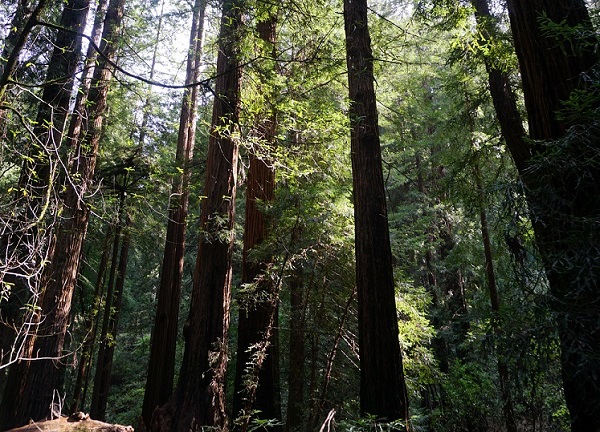
One of the Bible’s repeated assertions is that, after the apocalypse and the destruction of the world, God will create a new, perfect earth where believers will live in harmony forever:
“And I saw a new heaven and a new earth: for the first heaven and the first earth were passed away… And God shall wipe away all tears from their eyes; and there shall be no more death, neither sorrow, nor crying, neither shall there be any more pain: for the former things are passed away. And he that sat upon the throne said, Behold, I make all things new.”
—Revelation 21:1-5
This eschatological vision has always comforted believers who are experiencing what seems like unbearable oppression. In fact, that’s why it was invented in the first place. The idea of a new earth, free from all the pains and sorrows of our present existence, is a blissful balm to those who are suffering in the here and now.
But this theology has a sinister implication: that it doesn’t matter what we do to this planet, because even if we spoil it or use it up, God will create a pristine new one for us. In the era when this verse was written, that didn’t matter so much, because human beings didn’t have the power to do those things except on small scales. But in the modern industrial era, when human civilization genuinely has the power to reshape the face of the planet and alter the global climate in chaotic ways, it’s a very big problem if large numbers of people believe that.
And even now, when we stand at a climate tipping point, there are apocalypse-cheerleading Christian fundamentalists who are promoting this worldview with all their might. Predictably, creationists are urging people to downplay climate science:
God’s Word tells us about a “new heaven and a new earth” that He is planning for His people, free of sin and the Curse. Our current environmental problems are serious and worth further thought and action, but the Bible puts all such issues into proper perspective. While we need to behave wisely in the fleeting moments we have on this earth, a much greater change is coming…
And the Koch-backed Heartland Institute claims that human beings have a “Biblical duty” to “use” the earth as they see fit. While this worldview is in decline and less influential than it once was, it still commands the allegiance of conservative lawmakers who can bottle up change. Plus, we’re also much closer to unleashing climate disaster – meaning our margin of error is smaller than it’s ever been.
Already, global temperatures are pressing up against the aspirational limits of the Paris agreement. The Great Barrier Reef is bleaching and dying at an alarming rate. Extreme droughts and shifting weather could endanger even the giant sequoia groves of the California coast, whose cathedral trees have survived and endured across virtually the whole span of recorded history.
With our future in such peril and so great an uncertainty looming ahead, it’s now as vital as it’s ever been that we face the truth: there will never be a new heaven or a new earth. For better or for worse, this world is the only one we get. If we damage it, we have to patch it up. If we diminish it, we and our descendants have to live with that impoverishment. Fantasies of a brand-new creation are just that. They do nothing except delay and distract us from the vital mission of healing the damage we’ve caused while we still can.
And despite the signals of looming disaster, it’s not too late to turn the corner if we act swiftly. Solar power is hitting a record low price of 3 cents per kilowatt-hour. The planet-killing coal industry is in a spiral of collapse, shedding 20,000 jobs and 94 percent of its market value in the last five years alone. It’s even possible to pull CO2 back out of the air, a step I suspect will prove necessary in the long run.
Those giant sequoia trees have recorded centuries of human activity in their rings. Like the glaciers or the barrier reefs, it seems as though something so ancient and so vast ought to outlive us, and yet their fate is up to us. We can break the chain of history, so that our distant descendants will view our era as an unbridgeable chasm. The rhythms of nature have persisted for millions of years, but we can burn them away like dry tinder. That’s a power so terrifying it shouldn’t be in our hands, and yet it is.
Personally, I’m not hoping for a new earth – this old one will do just fine. I’m not eager to throw it away in the unfounded hope for something better. I’d much rather work to preserve what’s left and clean up the messes we’ve made, so that my distant descendants, too, can swim amidst the reefs, hike on glaciers, and stand beneath the immense stillness of the sequoia groves.